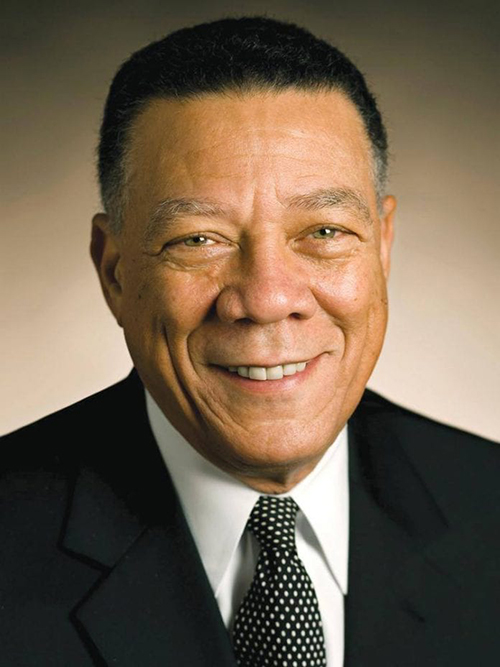
Pre-Law Minor (21 Credit Hours)
If law school is your goal, the Reuben V. Anderson Pre-Law Program gives you the tools, knowledge, and preparation needed to excel! This Minor focuses on legal reasoning, research, writing, and argumentation, ensuring that students enter law school with a strong foundation in the fundamentals of law and legal studies.

What You'll Learn
Legal research, writing, and case analysis
The structure of the legal system and constitutional law
How to construct strong legal arguments and analyze court decisions
The intersections of race, justice, and public policy
How to prepare for law school and the LSAT

What We Offer:
With a commitment to mentorship, student success, and timely graduation, ensuring that our scholars are prepared for law school, graduate programs, or the workforce and equipped to make an impact.
The Department offers multiple pathways tailored to student's individual career goals:
Course Descriptions: Reuben V. Anderson Pre-Law Program, Pre-Law Minor
Required Courses
This course introduces students to the foundational principles of the American legal system, legal method, and analytical reasoning. Students examine the judiciary, sources of law, statutory interpretation, and legal construction. Emphasis is placed on reading judicial opinions, briefing cases, and applying rules to novel scenarios.
CREDIT: THREE SEMESTER HOURS
A continuation of POL 345, this course introduces substantive law topics including torts, contracts, property, and criminal law through case method analysis and Socratic dialogue.
CREDIT: THREE SEMESTER HOURS
Prerequisite: POL 345
This course provides an overview of core civil law subjects—contracts, property, and torts—while teaching legal reasoning, terminology, and case synthesis.
CREDIT: THREE SEMESTER HOURS
Prerequisite: POL 345
Focuses on topics from the MBE and MEE, such as evidence, civil procedure, and constitutional law. Includes practice exams, diagnostic assessments, and test-taking strategies.
CREDIT: THREE SEMESTER HOURS
Prerequisites: POL 345, POL 347
Explores the Bill of Rights and its application in criminal law and procedure. Covers theories like originalism and living constitutionalism within the context of mass incarceration and civil liberties.
CREDIT: THREE SEMESTER HOURS
Prerequisite: POL 345
Teaches legal research and writing skills including case briefs, client letters, and proper citation using The Bluebook. Students learn how to analyze and write with legal precision.
CREDIT: THREE SEMESTER HOURS
Prerequisite: POL 346
This capstone course prepares students for law school writing assignments including predictive memos and persuasive briefs, with emphasis on editing, peer review, and legal argumentation.
CREDIT: THREE SEMESTER HOURS
Prerequisite: POL 435
Encouraged Courses
Examines the U.S. Constitution through landmark cases, emphasizing federalism, judicial review, and the evolving balance of power. Special focus is given to civil rights and marginalized populations.
CREDIT: THREE SEMESTER HOURS
Introduces LSAT strategies and provides a comprehensive overview of the law school admissions process including personal statements, diversity essays, and ABA accreditation.
CREDIT: THREE SEMESTER HOURS
What Can You Do With This Minor?
Legislative Analysis & Policy Research
Many government offices, think tanks, and lobbying firms hire individuals with legal reasoning and policy research skills to analyze and draft legislation.
Real Estate & Property Law Support
Working in real estate law, title examination, or contract review is another viable option without going to law school.
Human Rights & Social Justice Advocacy
Nonprofit organizations focused on civil rights, labor law, and criminal justice reform seek individuals with legal knowledge to support litigation efforts, research policy solutions, and assist with advocacy campaigns.
Legal Journalism & Media
A background in Pre-Law allows scholars to work in legal journalism, writing, and media analysis, covering policy, government, and criminal justice issues.
Contract Negotiation & Mediation
Understanding legal frameworks prepares scholars for business contract negotiation, mediation, and dispute resolution roles. These skills are highly valued in corporate and human resources settings.
Where To Go for More Information
A student considering law school or the Pre-Law Minor should seek advice from the Pre-Law Director in the Division of Social Sciences.

Dr. Natasha Magee-Woods, Esq.
Director, Reuben V. Anderson Pre-Law Program

Professor Rodrick Hickman, Esq.
Pre-Law Faculty
Resources and References
Features our Reuben V. Anderson Pre-Law Scholars as they have been accepted and received scholarships to the schools of their choice.
Ready to Pursue Justice?
Join the legacy of Reuben V. Anderson and become part of a new generation of legal advocates, scholars, and changemakers committed to justice and equality.
